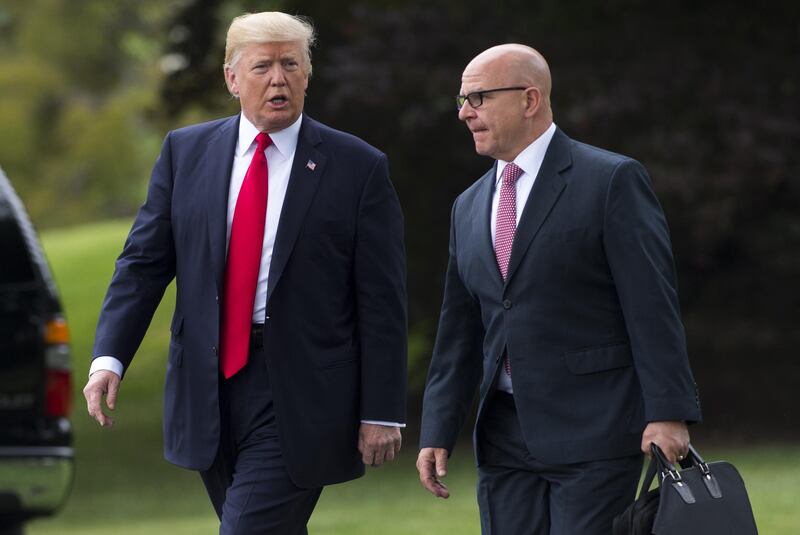Donald Trump's senior director for the Middle East Derek Harvey left his position on Thursday following differences with the Pentagon on the Middle East approach and tactics, in a move that could preempt changes in US policy on Syria and Iran.
The Weekly Standard broke the story at noon, announcing that Mr Harvey, a former US army colonel for more than two decades, "has been fired from his position at the National Security Council".
An NSC spokesperson confirmed Mr Harvey's departure to The National.
The spokesman said in a statement that Mr Trump's national security adviser General HR McMaster, "greatly appreciates Derek Harvey's service to his country as a career army officer, where he served his country bravely in the field and played a crucial role in the successful surge in Iraq, and also for his service on Capitol Hill and in the Trump administration".
The NSC spokesperson added that Mr Harvey might be reassigned within the administration and both sides were working to "identify positions in which his background and expertise can be best utilised".
David Shor, a Middle East policy analyst based in New York, said Mr Harvey's departure should be understood in the context of "the Trump administration's recent change of course in Syria, and attempts at a new approach in regards to Iran".
Mr Shor referred to the shift in tactics in Syria, focusing solely on ISIL while ignoring the Assad regime and abandoning the Tanf airbase following friction with pro-Iranian proxies in the area. The administration also ended the CIA programme to aid Syrian rebels.
"These changes were surely opposed by Mr Harvey, and his departure should be seen in that context," he said.
Mr Harvey, known for his hawkish views on Iran and favouring a holistic approach in confronting both Iran and ISIL in Syria and Iraq, found himself at odds with his superiors and generals at the Pentagon, former officials told The National.
"There is no desire to take the fight beyond ISIL," said one former official. Another former official who previously worked with Mr Harvey at the Pentagon said there were personality differences between Mr Harvey and his bosses.
"He is very hard to work with, and is obsessed with countering Iran," the official explained.
Mr Harvey's departure also comes as US seeks to test the Iran deal with more inspections. "The inspection process is sure to take some time, and will put the brakes on any non-compliance certification plans," explained Mr Shor, framing it as another indication of a change in course toward Iran.
It was not clear who might be be chosen to take Mr Harvey's place on the National Security Council. The Wall Street Journal reported that Mike Bell, a former US army colonel who serves as the NSC director for Gulf affairs, will take over as acting Middle East director until a replacement is found.
Senior Trump Mideast adviser removed following differences on Syria and Iran
Retired colonel Derek Harvey was known for his hawkish views on Iran and favouring a holistic approach in confronting both Iran and ISIL in Syria and Iraq

Editor's picks
More from the national





